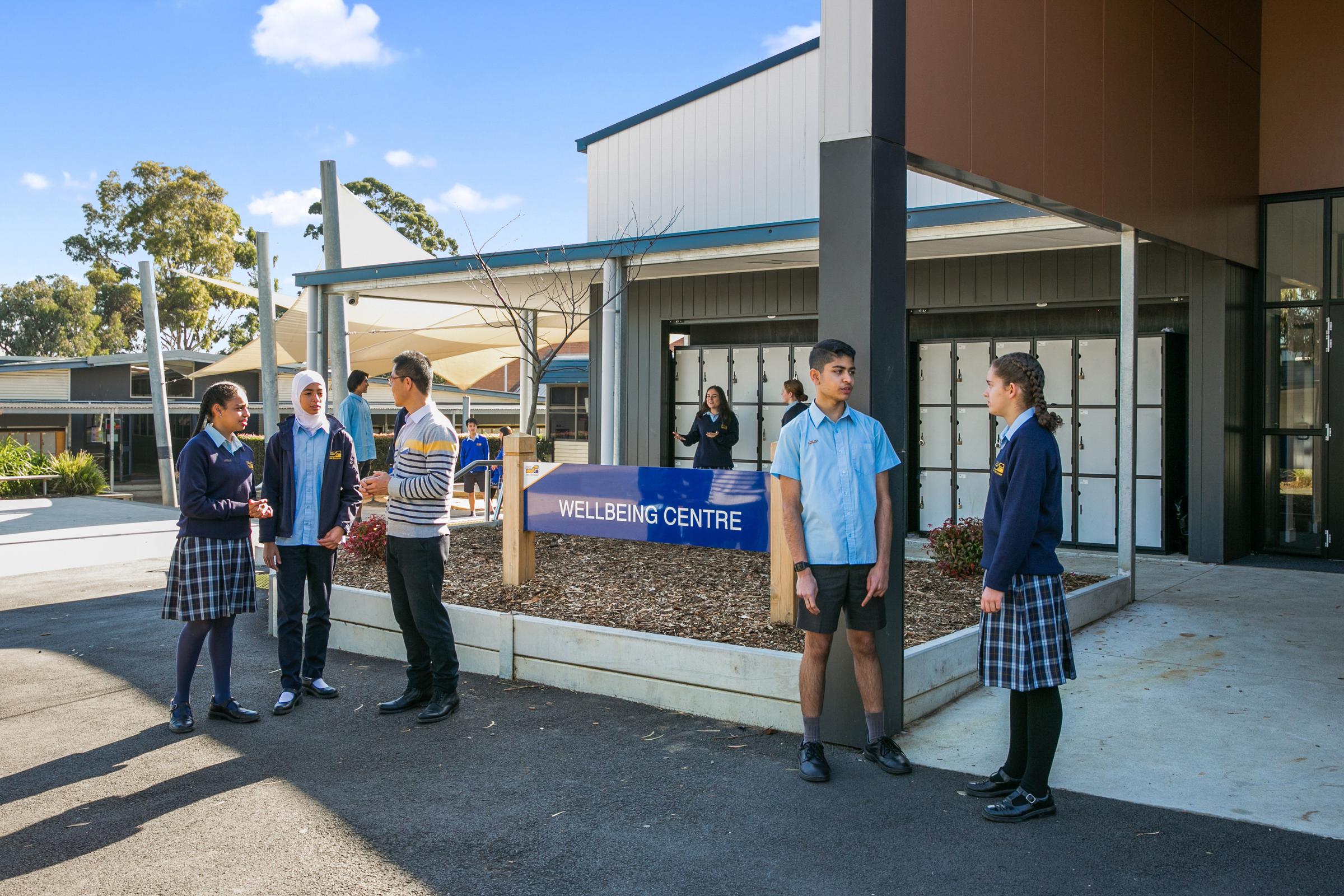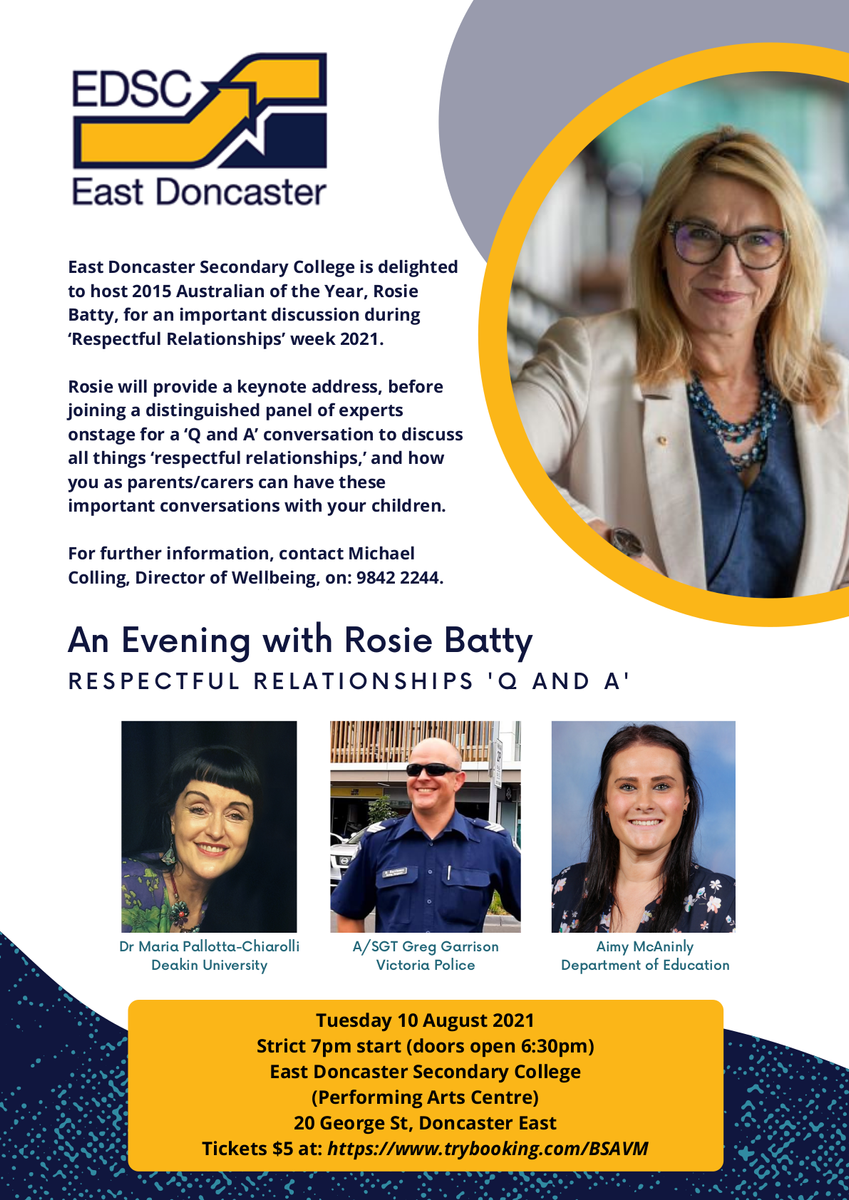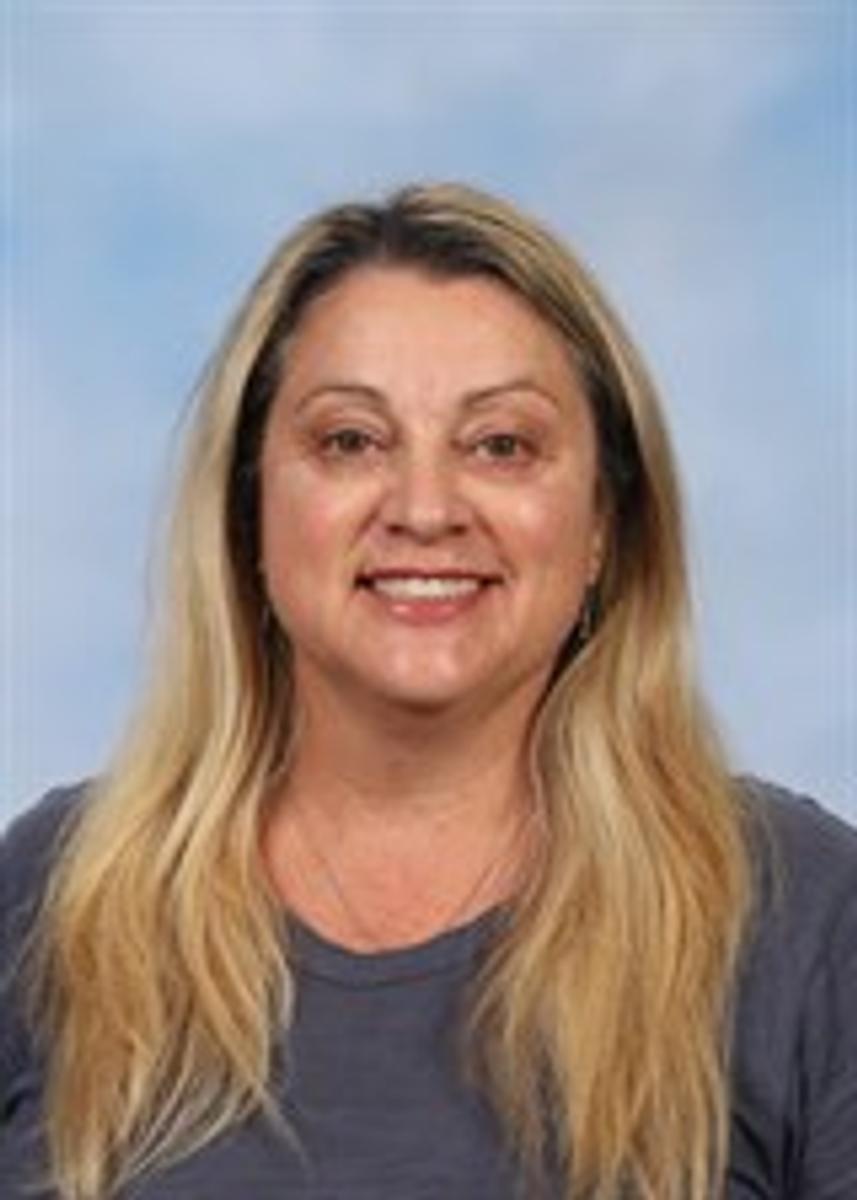
Student Wellbeing News
Meet the Team! Maria Rigopoulos
- How long have you worked at EDSC? 8 years
- If you could live anywhere, where would it be? The Greek Islands
- What is your favourite family vacation? Noosa
- What really makes you angry? The injustices of the world.
- What makes you laugh the most? Sharing stories with my family about our days.
- What did you want to be when you were small? A primary school teacher.
- If you could choose to do anything for a day, what would it be? Go to the Peninsula Hot Springs with my husband.
- Would you rather ride a bike, ride a horse, or drive a car? Drive a car.
- What would you sing at Karaoke night? Mamma Mia
- What’s the most interesting thing you see out of your office or kitchen window? Hot air balloons at sunrise.
- On a scale of 1-10 how funny would you say you are? A solid 8 according to my colleague Michael. I like to find the funny side of life.
- What was your first job? Working in a button, wool and haberdashery shop.
- If you could join any past or current music group which would you want to join? ABBA
- How many languages do you speak? Two and one quarter – English, Greek and Indonesian-Hello, My name is Maria. How are you?
- If you had to describe yourself as an animal, which one would it be? A meerkat- inquisitive, observant and like to stick with your family & loved ones.
- What is one thing you will never do again? Rollercoaster ride.
- Who knows you best? My husband
- If you could hire someone to help you, would it be with cleaning, cooking, or yard work? Yard work
- What two radio stations do you listen to the most? 3AW and Nova.
- If you could only eat one meal for the rest of your life, what would it be? Grilled snapper, salad and hot chips.
Maria Rigopoulos
Wellbeing Coordinator
An Evening with Rosie Batty
Wellbeing Staff
For more information about Wellbeing at the College, please visit the following link ..
Child Safety Standards
East Doncaster Secondary College is committed to the safety and wellbeing of all children and young people. This will be the primary focus of our care and decision making.
East Doncaster Secondary College has zero tolerance for child abuse.
East Doncaster Secondary College is committed to providing a child safe environment where children and young people are safe and feel safe, and their voices are heard about decisions that affect their lives. Particular attention will be paid to the cultural safety of Aboriginal children and children from culturally and/or linguistically diverse backgrounds, as well as the safety of children with a disability.
Every person involved in East Doncaster Secondary College has a responsibility to understand the important and specific role he/she plays individually and collectively to ensure that the wellbeing and safety of all children and young people is at the forefront of all they do and every decision they make.
In our planning, decision making and operations, all personnel at East Doncaster Secondary College will;
- Take a preventative, proactive and participatory approach to child safety;
- Value and empower children to participate in decisions which affect their lives;
- Foster a culture of openness that supports all persons to safely disclose risks of harm to children
- Respect diversity in cultures and child rearing practices while keeping child safety paramount;
- Provide written guidance on appropriate conduct and behaviour towards children;
- Engage only the most suitable people to work with children and have high quality staff and volunteer supervision and professional development;
- Ensure children know who to talk with if they are worried or are feeling unsafe, and that they are comfortable and encouraged to raise such issues;
- Report suspected abuse, neglect or mistreatment promptly to the appropriate authorities;
- Share information appropriately and lawfully with other organisations where the safety and wellbeing of children is at risk; and
- Value the input of and communicate regularly with families and carers.





